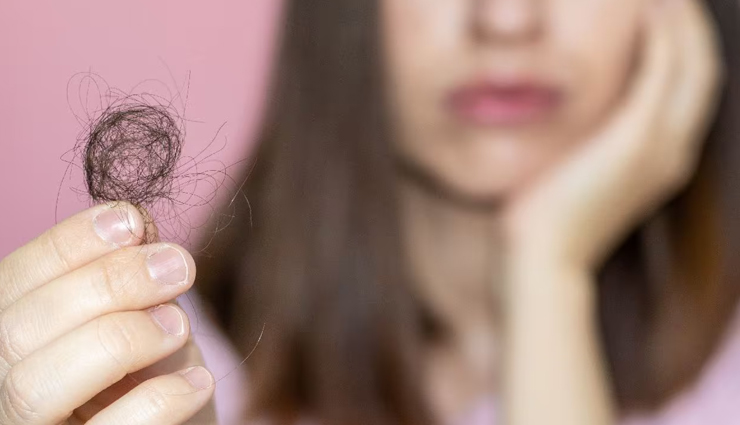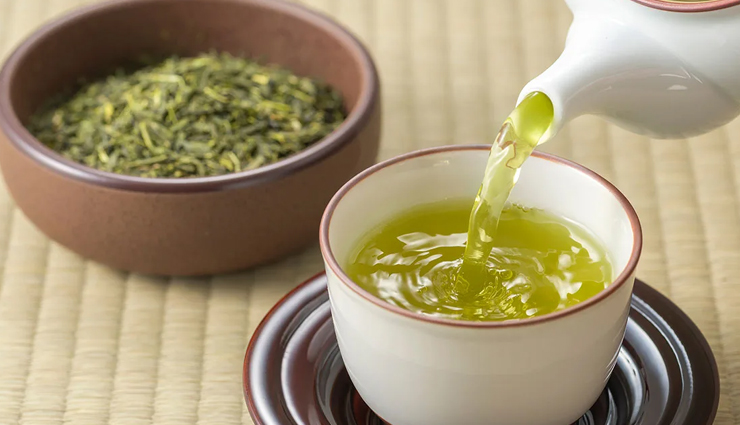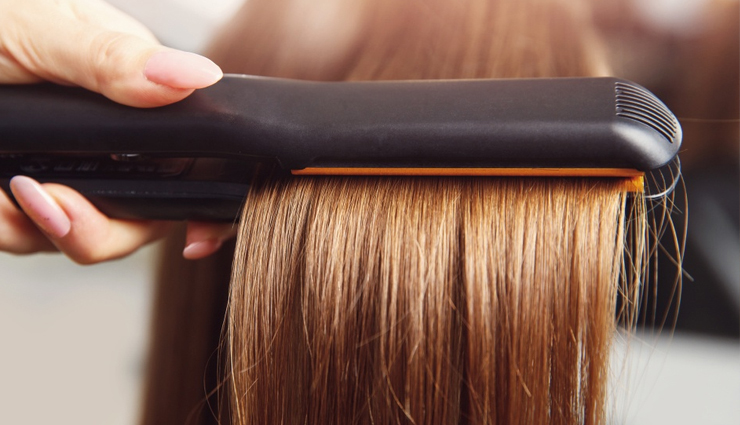8 Effective Home Remedies To Treat Hair Loss Caused By Hormonal Imbalance
By: Priyanka Maheshwari Thu, 30 Nov 2023 8:25:14

Hair loss caused by hormonal imbalance is a common and distressing condition that affects both men and women. Hormones play a crucial role in regulating various physiological processes in the body, including the growth and maintenance of hair. When there is an imbalance in hormone levels, it can disrupt the natural hair growth cycle, leading to excessive shedding and, ultimately, hair loss.
Hormonal imbalance can occur due to a variety of factors, including age, genetics, medical conditions, and lifestyle choices. Hormones such as testosterone, dihydrotestosterone (DHT), estrogen, and thyroid hormones play significant roles in hair growth and maintenance. An excess or deficiency of these hormones can disrupt the delicate balance required for healthy hair.
In conditions such as androgenetic alopecia, also known as male or female pattern baldness, an overproduction of DHT, a byproduct of testosterone, can lead to the shrinking of hair follicles. This causes hair to become thinner and shorter, eventually leading to a visible reduction in hair density. Similarly, hormonal changes during pregnancy, childbirth, menopause, or conditions like polycystic ovary syndrome (PCOS) can contribute to hair loss in women.
Thyroid disorders, such as hypothyroidism or hyperthyroidism, can also impact hair health. The thyroid hormones influence the metabolism of cells, including those in hair follicles. Any disruption in thyroid function can lead to hair thinning or loss.
Addressing hormonal imbalance-induced hair loss often involves identifying and treating the underlying cause. This may include hormone replacement therapy, medications to block the effects of certain hormones, or lifestyle changes. Additionally, adopting a healthy and balanced diet, managing stress, and maintaining good overall health can contribute to improving hormonal balance and supporting hair growth.
Understanding the connection between hormonal imbalance and hair loss is crucial for individuals seeking effective solutions to address this concern. Consulting with a healthcare professional or a dermatologist can help determine the specific hormonal factors contributing to hair loss and guide appropriate treatment strategies for regaining healthy and vibrant hair.

# Balanced Diet:
Ensure you have a well-balanced diet rich in vitamins, minerals, and proteins, as these nutrients are crucial for hair health. Include foods like leafy greens, fruits, lean proteins, and whole grains in your diet.

# Omega-3 Fatty Acids:
Foods rich in omega-3 fatty acids, such as salmon, flaxseeds, and walnuts, can contribute to a healthy scalp and promote hair growth. Omega-3s have anti-inflammatory properties that may help address inflammation associated with hormonal imbalances.

# Vitamin D:
Adequate vitamin D levels are essential for hair follicle health. Spend some time in the sun or consider vitamin D supplements if you have a deficiency.

# Herbal Supplements:
Some herbs, like saw palmetto and nettle root, are believed to have properties that can help balance hormones, especially those related to DHT production. However, it's crucial to consult with a healthcare professional before taking any herbal supplements, as they may interact with medications or have side effects.

# Essential Oils:
Certain essential oils, such as rosemary, lavender, and peppermint, are thought to have properties that can promote hair growth. Mix a few drops with a carrier oil (like jojoba or coconut oil) and massage the mixture into your scalp.

# Green Tea:
Green tea contains antioxidants that may help inhibit the production of DHT. You can apply cooled green tea directly to your scalp or consume it regularly as a beverage.

# Lifestyle Changes:
Manage stress through practices like yoga, meditation, or deep breathing exercises, as stress can contribute to hormonal imbalances. Ensure you get enough sleep, as lack of sleep can also affect hormone levels.

# Avoid Harsh Hair Treatments:
Limit the use of harsh chemicals, heat styling, and tight hairstyles that can damage hair and contribute to further hair loss.





